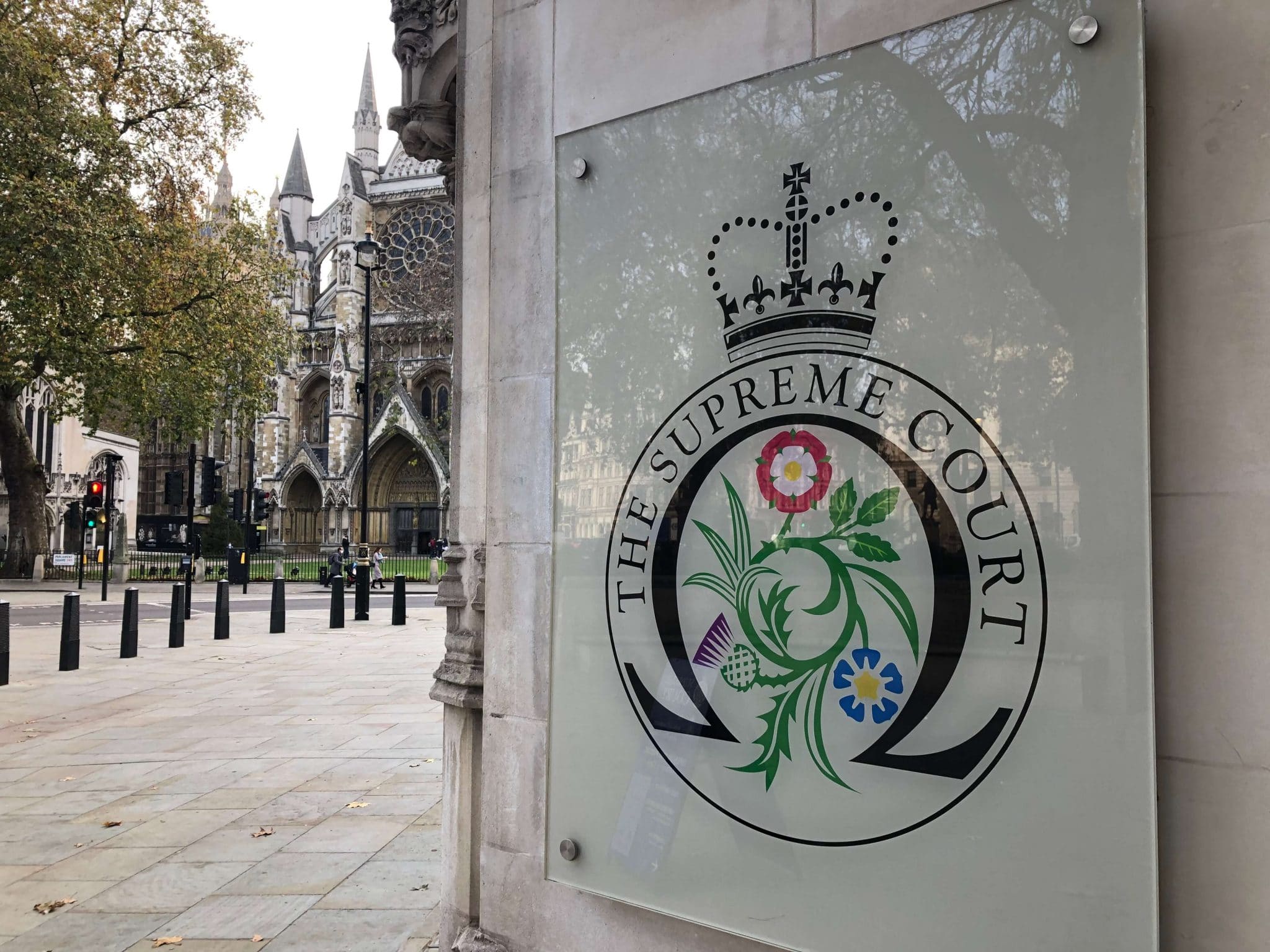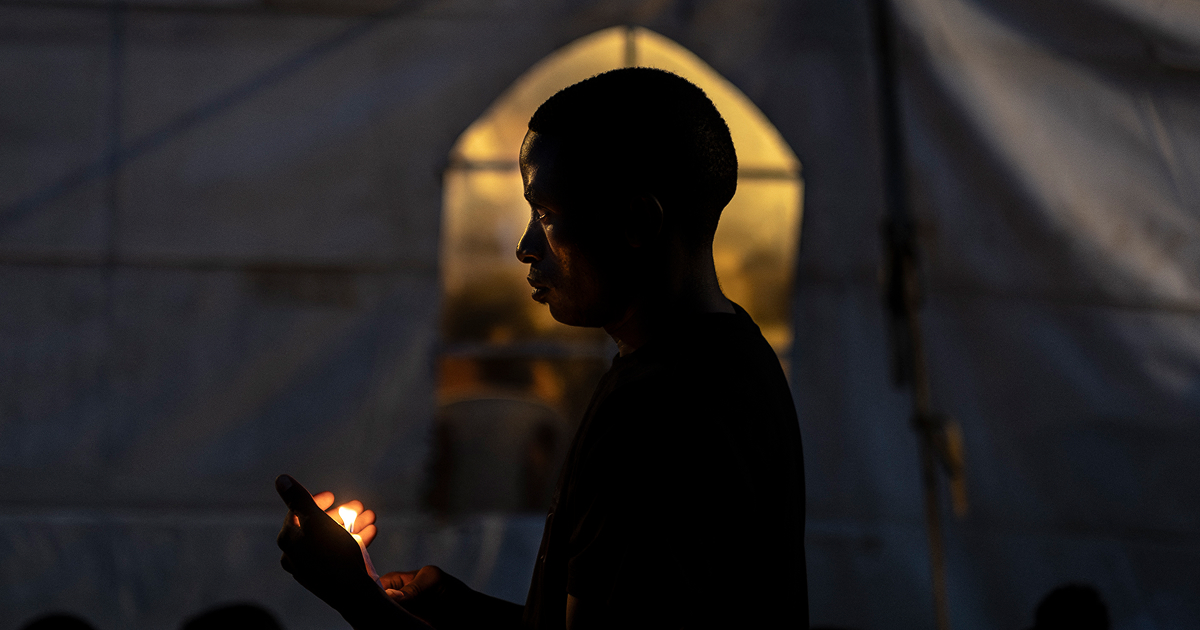Legal decisions don’t normally make for exciting reading, but can tell you a great deal about what happens when legislators and lawyers abandon straightforward morality. For a demonstration, you need look no further than a decision by the UK Supreme Court last week.
Just over two years ago, a social services department had a disconcerting request from a man in his 30s under their supervision – call him B – with considerable mental problems (including severe autism and semi-blindness). He needed sex. Not love, not a committed relationship, but – well – sex. When B also admitted that he had no real idea that sex required consent by the other party, worry turned to panic and the social workers turned to the Court of Protection.
In September 2019 that court caused alarm when it said that provided B knew roughly what was involved in sex – the crude mechanics, and implications such as pregnancy – he was capable of making decisions about it even though he had no serious inkling of the need for consent by the other party, and thus had to be permitted contact with potential partners. It was this decision which, much to the relief of everyone concerned with women’s rights, the Supreme Court decided had to be reversed.
This is patently right. True, B was in no way culpable (and indeed we are bound to treat him with every possible compassion, as with any mentally ill person). But it requires no large intelligence to see him as a worrying threat; and if a person is a threat to others, even without being at fault, any theologian will confirm that the state is morally justified in taking proportionate steps to restrain him.
Interestingly, however, the court didn’t see it this way. Instead (and also entirely in line with the relevant legislation, the Mental Capacity Act 2005), it characterised saw the issue as one about autonomy – and this meant the autonomy, not of any victims, but of B himself. It decided, in essence, that B could be rightfully restrained from contact with the opposite sex because he himself had no mental capacity to take an informed decision to engage in sexual relations unless he was aware not only of the nature of the act but also of the need for consent.
How have we got to this bizarre (and frightening) position where B’s endangerment of women is apparently seen as fundamentally raising issues of B’s own capacity to decide? The answer is an interesting shift in the way society looks at mental health and autonomy. Until about thirty years ago it saw them in a way which at least originated in Christian-based morality. A person was either mentally capable or he was not. If he was, he was left to take his own decisions unless he was a threat to others, for the impeccably moral reason that autonomy conduced to proper human flourishing, and promoting it gave every individual to exercise free will to achieve spiritual advancement in his own way. If, by contrast, someone was mentally impaired, then the moral needle shifted. Human flourishing remained paramount, but to allow it autonomy might actually have to be restricted.
More recently, however, there has been a subtle change. We still talk of capacity, but it has removed any idea of moral agency; it is now just a matter of ensuring decisions are properly informed. Further it has been relativised, so that you are no longer either capable or not. Hence you might have capacity to decide on some things (such as your medication or your money), but not others (such as whether you want to live in a care home). Meanwhile autonomy, far from being a support for moral ends, has becomne the moral end itself. Effectuating people’s desire to do something they want to do, provided only that they are sufficiently apprised of the factual circumstances and do not infringe someone else’s equally disembodied autonomy, is is itself a value; asking whether this will actually do any good, moral or otherwise, is seen as a dangerous distraction.
Viewed in this light, there is nothing surprising about the decision in B’s case. If we are indeed not to be seen as moral agents but as disembodied bundles of capacities and autonomies, everything falls into place. Decisions about sex and forming relationships are, after all, just decisions: and if your right to decide if you want to live in a care home or accept medication depends simply on your ability to weigh the factual circumstances, why not those too?
But what a bleak view. These days, unfortunately, it seems to take someone other than a well-meaning family lawyer to see what is obvious to any thinking person: there is nothing moral, or even right, about reducing morality to a bleak exercise in giving people what they say they want, provided only they do so having been fully informed. Unless our idea of right and wrong involves something external to us, some search for the good outside us, it ceases to be morality worth the name. What a good thing at least some of us are not lawyers or law reformers.
Image caption: The Supreme Court, Parliament Square. (Credit: Ferdie Rous)
Legal decisions don’t normally make for exciting reading, but can tell you a great deal about what happens when legislators and lawyers abandon straightforward morality. For a demonstration, you need look no further than a <a href="https://www.theguardian.com/law/2021/nov/24/uk-court-refuses-to-allow-man-who-does-not-understand-consent-to-pursue-sex" target="_blank" rel="noreferrer noopener">decision</a> by the UK Supreme Court last week.
Just over two years ago, a social services department had a disconcerting request from a man in his 30s under their supervision – call him B – with considerable mental problems (including severe autism and semi-blindness). He needed sex. Not love, not a committed relationship, but – well – sex. When B also admitted that he had no real idea that sex required consent by the other party, worry turned to panic and the social workers turned to the Court of Protection.
In September 2019 that court caused alarm when it <a href="https://www.theguardian.com/society/2019/oct/03/man-who-does-not-understand-consent-has-right-to-pursue-sex-court-rules" target="_blank" rel="noreferrer noopener">said</a> that provided B knew roughly what was involved in sex – the crude mechanics, and implications such as pregnancy – he was capable of making decisions about it even though he had no serious inkling of the need for consent by the other party, and thus had to be permitted contact with potential partners. It was this decision which, much to the relief of everyone concerned with women’s rights, the Supreme Court decided had to be reversed.
This is patently right. True, B was in no way culpable (and indeed we are bound to treat him with every possible compassion, as with any mentally ill person). But it requires no large intelligence to see him as a worrying threat; and if a person is a threat to others, even without being at fault, any theologian will confirm that the state is morally justified in taking proportionate steps to restrain him.
Interestingly, however, the court didn’t see it this way. Instead (and also entirely in line with the relevant legislation, the Mental Capacity Act 2005), it characterised saw the issue as one about autonomy – and this meant the autonomy, not of any victims, but of B himself. It decided, in essence, that B could be rightfully restrained from contact with the opposite sex because he himself had no mental capacity to take an informed decision to engage in sexual relations unless he was aware not only of the nature of the act but also of the need for consent.
How have we got to this bizarre (and frightening) position where B’s endangerment of women is apparently seen as fundamentally raising issues of B’s own capacity to decide? The answer is an interesting shift in the way society looks at mental health and autonomy. Until about thirty years ago it saw them in a way which at least originated in Christian-based morality. A person was either mentally capable or he was not. If he was, he was left to take his own decisions unless he was a threat to others, for the impeccably moral reason that autonomy conduced to proper human flourishing, and promoting it gave every individual to exercise free will to achieve spiritual advancement in his own way. If, by contrast, someone was mentally impaired, then the moral needle shifted. Human flourishing remained paramount, but to allow it autonomy might actually have to be restricted.
More recently, however, there has been a subtle change. We still talk of capacity, but it has removed any idea of moral agency; it is now just a matter of ensuring decisions are properly informed. Further it has been relativised, so that you are no longer either capable or not. Hence you might have capacity to decide on some things (such as your medication or your money), but not others (such as whether you want to live in a care home). Meanwhile autonomy, far from being a support for moral ends, has becomne the moral end itself. Effectuating people’s desire to do something they want to do, provided only that they are sufficiently apprised of the factual circumstances and do not infringe someone else’s equally disembodied autonomy, is is itself a value; asking whether this will actually do any good, moral or otherwise, is seen as a dangerous distraction.
Viewed in this light, there is nothing surprising about the decision in B’s case. If we are indeed not to be seen as moral agents but as disembodied bundles of capacities and autonomies, everything falls into place. Decisions about sex and forming relationships are, after all, just decisions: and if your right to decide if you want to live in a care home or accept medication depends simply on your ability to weigh the factual circumstances, why not those too?
But what a bleak view. These days, unfortunately, it seems to take someone other than a well-meaning family lawyer to see what is obvious to any thinking person: there is nothing moral, or even right, about reducing morality to a bleak exercise in giving people what they say they want, provided only they do so having been fully informed. Unless our idea of right and wrong involves something external to us, some search for the good outside us, it ceases to be morality worth the name. What a good thing at least some of us are not lawyers or law reformers.
<em>Image caption: The Supreme Court, Parliament Square. (Credit: Ferdie Rous)</em>


















